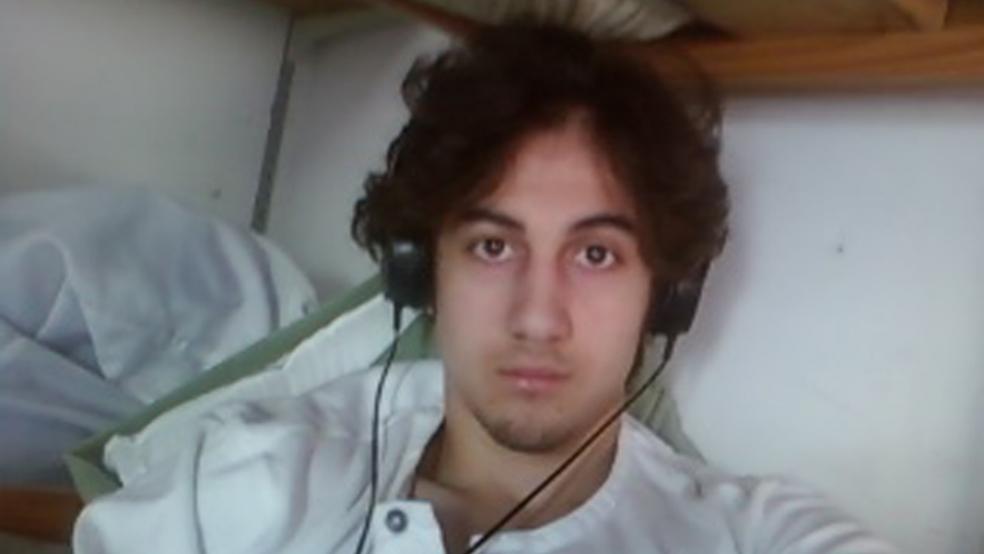Found guilty on 30 counts last week — 17 of which could carry the death penalty — Boston Marathon bomber Dzhokhar Tsarnaev now faces the sentencing phase of his trial, which begins Tuesday.
The life-or-death decision comes at a time when support for capital punishment in the U.S. is at its lowest in 40 years — and as admissions of flawed forensics and very public examples of racial bias in the criminal defense system have raised questions about the outcomes of past death penalty cases.
Tsarnaev’s case may be different than most, given the nature of his crimes — three people were killed and more than 260 injured in the marathon bombing — and their high profile. His sentencing has drawn comparisons to that of Timothy McVeigh, the convicted Oklahoma City bomber who was executed by lethal injection in 2001. And it has stirred renewed debate about whether the death penalty would be the most fitting form of justice for Tsarnaev — and whether it works more generally.
In a recent CNN/ORC poll, 53 percent of Americans said Tsarnaev should be put to death and 45 percent said he should be sentenced to life in prison. Fewer than a third of Bostonians, a predominantly Catholic population, back the death penalty for the 21-year-old, while 58 percent support a sentence of life in prison, according to a poll by public radio station WBUR. The parents of Martin Richards, the 8-year-old who was the youngest victim of the Boston Marathon bombing, are urging federal prosecutors to stop seeking the death penalty for Tsarnaev. They support sending him to jail for the rest of his life without any right to appeal, rather than sentencing him to death, which they wrote in an open letter to the Justice Department “could bring years of appeals and prolong reliving the most painful day of our lives.”
Related: Relief in Boston as Tsarnaev Convicted on All Counts
Americans’ support for the death penalty in general has waned in recent years. Although a majority still favors capital punishment, the level of support has dropped from 78 percent in 1996 to 62 percent in 2011 to 56 percent this year, according to results of a survey released by the Pew Research Center last month.
Democrats represent the bulk of the decline. In 1996, 71 percent of Democrats favored capital punishment, while 25 percent opposed it. Now, 45 percent of Democrats favor the death penalty, while 47 percent oppose it. Republicans’ opinions have not shifted as much: 77 percent favor the death penalty, down from 87 percent in 1996.
Overall, 71 percent of Americans recently said there is some risk that an innocent person will be put to death — and that was before the Justice Department acknowledged that FBI experts in a microscopic hair comparison forensic unit gave flawed testimony in more than 95 percent of the 268 trials dating back to 1972 examined as part of a review aided by the National Association of Criminal Defense Lawyers and the Innocence Project.
Of the cases reviewed, 32 resulted in death sentences and 14 individuals have already been executed or died in prison. The news will most likely result in appealing other convictions and raise fresh concerns regarding wrongful executions.
A record 125 convicted felons were exonerated in the U.S. last year, up from 87 people in 2013. Six of those whose convictions were overturned had been sentenced to death, according to the National Registry of Exonerations. Since the early 1970s, more than 150 people on death row have been exonerated.
Overwhelming racial divides in support for the death penalty still exist, but overall support for it has gone down among whites, blacks and Hispanics. About 34 percent of blacks and 45 percent of Hispanics are in favor of the death penalty, compared to 63 percent of whites. More than half of Americans surveyed by Pew think minorities are more likely than whites to be sentenced to death.
If doubts about how the death penalty is applied have played a part in shifting opinions, the high expense of capital punishment cases has also been the center of some criticism. Not only are death penalty cases considerably longer and more expensive, but housing death penalty prisoners is costlier as well. Each prisoner on death row receives his or her own cell and the prisons require more guards.
At the state level, a Seattle University study published earlier this year found that the average cost to Washington State of a death penalty case is over $3 million, or about $1 million more than the average for cases in which prosecutors did not seek the death penalty. Other studies have similarly found that the costs of death penalty cases run higher than for non-capital cases.
Related: Judge Rules California Death Penalty System Unconstitutional
On the federal level, the average cost of defending a federal death penalty case is $620,932, according to the Death Penalty Information Center — or about eight times that of a federal murder case not involving the death penalty. Federal convicts generally stay on death row for a decade or more as their appeals play out. Only three people have been executed since modern death penalty laws took effect in 1988. About 60 have been sentenced to death and are now awaiting appeals or other legal proceedings, according to the Federal Death Penalty Resource Council.
Dzohkar Tsarnaev could soon join their ranks.
Top Reads from The Fiscal Times:


